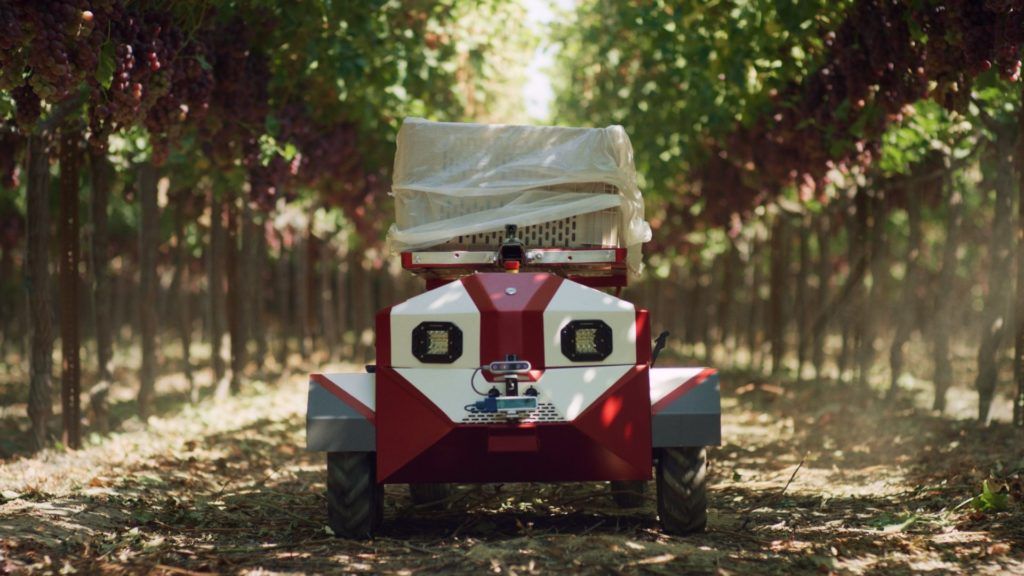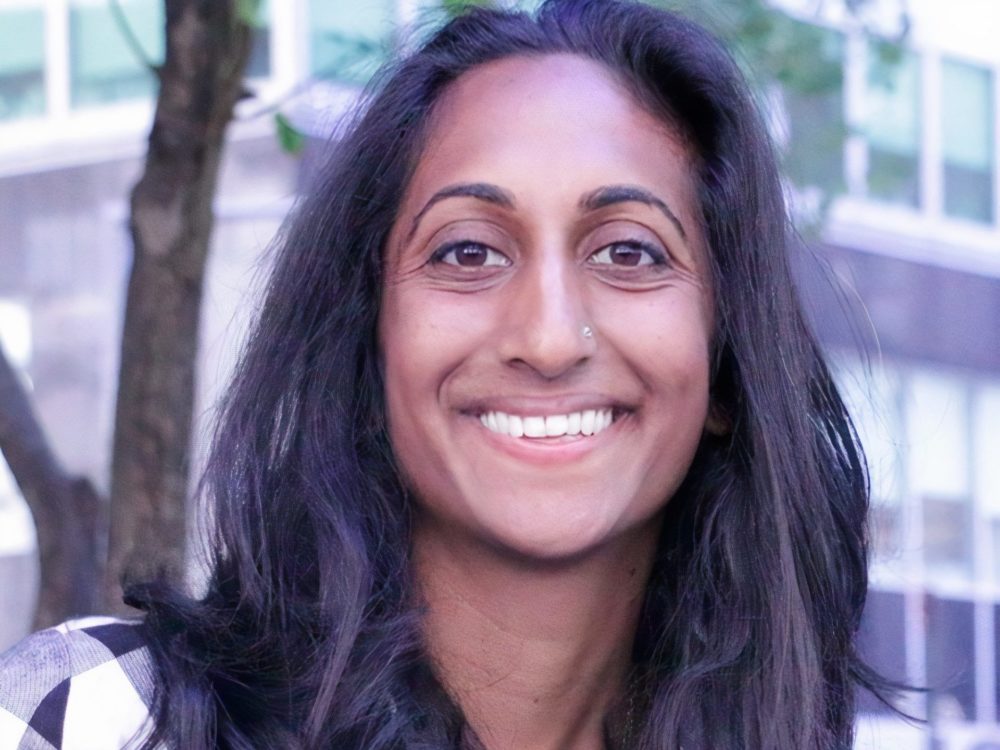Increasing costs, labor challenges, and rising environmental concerns have created a lot of potential for farm robots and the startups that build them.
US-based Future Acres launched its “harvest companion” robot, Carry, last year. In trials, Carry has been used for AI-powered crop transport, working specifically with grapes. Other specialty crops are planned for the future. The Future Acres team is also developing precision spraying, crop counting, and crop picking features for subsequent iterations of Carry.
Leading the charge is co-founder and CEO Suma Reddy, a longtime entrepreneur who has worked both with startups and smallholder farmers over the course of her career – including co-founding indoor farming startup Farmshelf before linking up with Wavemaker Partners to spin out Future Acres.
In a recent conversation with AFN, Reddy (SR) discussed her path to the farm and the experiences, both business and personal, that have informed her commitment to agriculture and climate tech.
AFN: What led you to agtech in the first place?
SR: It’s been a long, meandering path, but I think a thread that’s followed it has been impact agriculture, climate, and entrepreneurship.
My first gig was in the Peace Corps in Mali. I was living among smallholder farmers, working with them for over two years and then I jumped over to India to work for a microfinance company that had just converted from a nonprofit to a for-profit. Totally unbeknownst to me, they would become a unicorn. I had long left by the time of the IPO but [the experience] really got me hooked on what entrepreneurship and innovation do.
After business school, I decided to jump into climate. That eventually led me to anaerobic digestion – organic waste to energy. I learned from an uncle in India who was building the world’s first sugarcane waste to [compressed natural gas] project. So it was, again, taking me back into into agriculture and this time using hard tech, so I tried to apply those learnings to the US among dairy farms. It was really hard to get a big project off the ground, so I put that to bed [but] wanted to continue my entrepreneurial journey.
I then jumped over to indoor farming. I had the chance to co-found an indoor farming company that was building bookshelf-size farms. After I left that company, at the height of Covid-19, I got really interested in venture studio concepts; those that productize the act of company building. But I wanted to stay in something that was impact, ideally something with agriculture or climate. I found Wavemaker and they had the concept for Future Acres, so I jumped at the chance to build and lead that company.
AFN: Why did Future Acres choose to start with speciality crops?
SR: By 2050, we’ll reach a population of 10 billion, need to increase our food production by 50% using no more land, and reduce our emissions by 75%.
We’ve seen with many specialty crop farms that [labor is] declining 7% a year, which ultimately means potentially 20% less crops that are harvested, with 20% less revenue for the farm; and that means 20% less food shipped to our grocery stores.
[This] felt like a real problem that needed to be solved today. What I get excited about is that we start with solving the labor problem, but [Future Acres] really is a platform to solve [those] other types of problems.
For example, on the farmworkers side, our tagline is: “We build advanced mobility solutions.” We’re starting with Carry, an autonomous harvest companion that increases production efficiency, improves farm worker safety, and provides realtime data analytics.
The second piece is around the state of workers in our farm economy. Are there little things that we can do to make life better and easier [not only] using autonomous equipment, but also from a systemic perspective? We’re also planning on implementing educational, vocational, and skill-building programs starting this summer – teaching kids about the intersection of agriculture and robotics and getting more folks excited to be working in this space.
The third piece is around land and emissions, and I think that’s where data can really can play a part.

AFN: What’s next for Future Acres?
SR: We built the first generation of our prototype product late last year and demoed that on a farm. Our goal for this year is to build 10 [units of Carry].
[There are] three key things that we want to hit on in the short term.
[The first is] plug-and-play deployment: How do we make this easy to use for the farms, operators, and crew?
Then we move to fleet management. We think of this vision of the farm as a bunch of small robots and being able to manage those fleets, similar to how Lyft manages their fleets across a city.
The third is the realtime data and analytics. Our goal is to push on each of those three [and] hopefully have a really successful demo or pilot period during harvest season of this year.
AFN: Describe your experiences so far with being a woman in agriculture and agtech.
SR: I was nervous coming into the space, being a woman, being a person of color, and then also queer. Everyone has been incredible. Everyone I’ve met, there’s been such a thirst for solutions. So when I do talk to farms or when I talk to the larger industry associations, I’ve found a lot of openness to talking about what we’re building, and why we’re building it ,and then of course what problems we can solve.
All that said, it is sort of a secret mission to figure out how we can bring more folks into the space, whether as technologists or marketers, and get more people excited, especially if they didn’t have the opportunity to be exposed to agriculture in the US [or] didn’t grow up on a fifth-generation farm.
I’m trying to figure out if I’m the only queer brown woman [who is an] ag robotics CEO out there. In general, I think there are plenty of women having this discussion and trying to figure out what this could look like in the future.
From a business perspective, being a multiple-time entrepreneur: the first time [you launch a business] it is hard, you’re learning a new skill set, you’re oftentimes making a lot of mistakes, and you don’t have networks or support communities.
I would say now, pushing through that and just being persistent about wanting to build technology, wanting to build impact, I find I don’t make the mistakes I made 10 years ago. Also I have a plethora of incredible people that I can call up and ask for help – which 10 years ago, I did not have.





